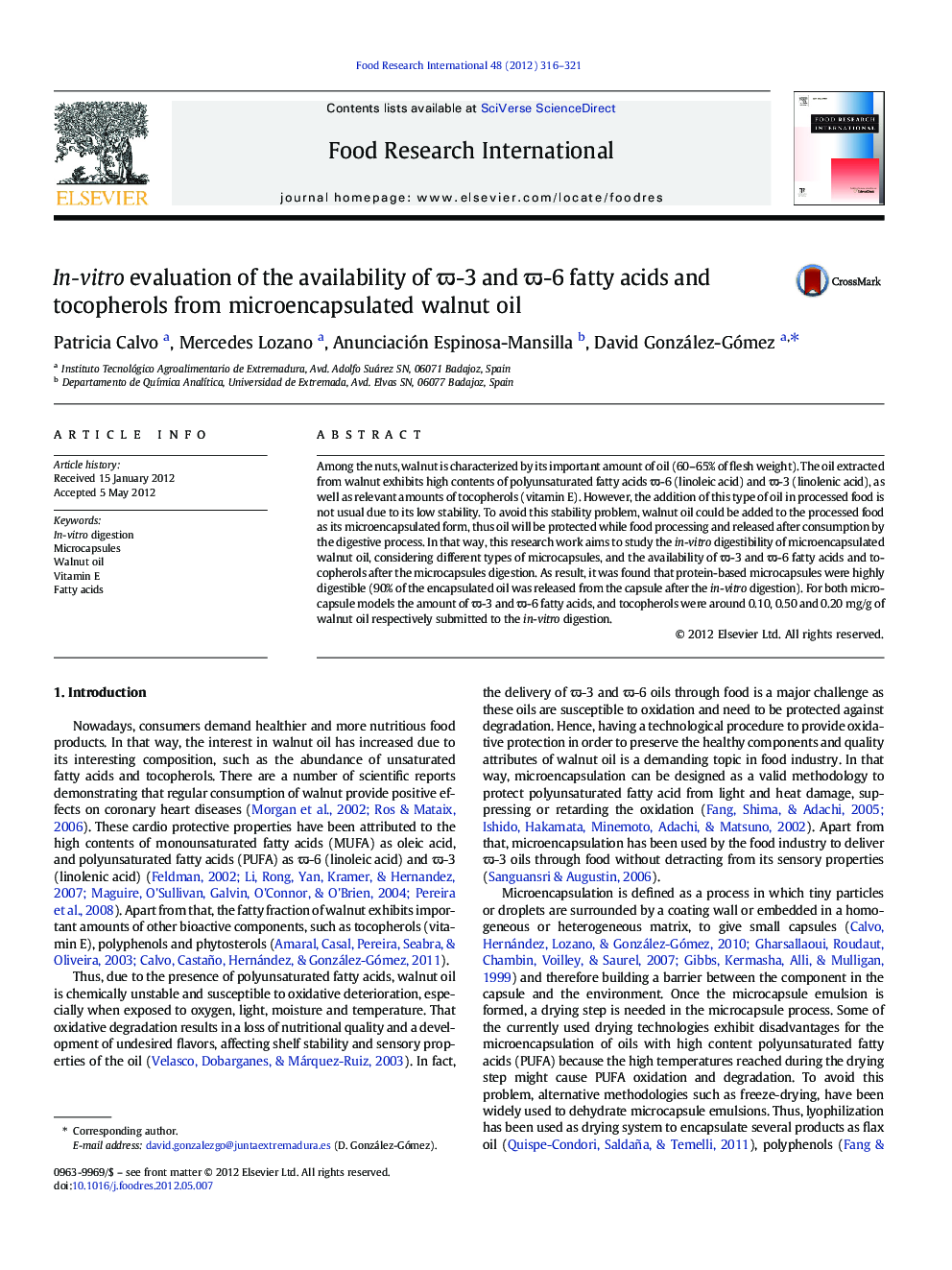| Article ID | Journal | Published Year | Pages | File Type |
|---|---|---|---|---|
| 6399328 | Food Research International | 2012 | 6 Pages |
Among the nuts, walnut is characterized by its important amount of oil (60-65% of flesh weight). The oil extracted from walnut exhibits high contents of polyunsaturated fatty acids Ï-6 (linoleic acid) and Ï-3 (linolenic acid), as well as relevant amounts of tocopherols (vitamin E). However, the addition of this type of oil in processed food is not usual due to its low stability. To avoid this stability problem, walnut oil could be added to the processed food as its microencapsulated form, thus oil will be protected while food processing and released after consumption by the digestive process. In that way, this research work aims to study the in-vitro digestibility of microencapsulated walnut oil, considering different types of microcapsules, and the availability of Ï-3 and Ï-6 fatty acids and tocopherols after the microcapsules digestion. As result, it was found that protein-based microcapsules were highly digestible (90% of the encapsulated oil was released from the capsule after the in-vitro digestion). For both microcapsule models the amount of Ï-3 and Ï-6 fatty acids, and tocopherols were around 0.10, 0.50 and 0.20Â mg/g of walnut oil respectively submitted to the in-vitro digestion.
⺠In-vitro digestion as appropriate methodology to evaluate microcapsules digestibility. ⺠Protein components help microcapsule digestion in gastrointestinal tract. ⺠Microencapsulation as way to incorporate bioactive ingredients in food staff.
